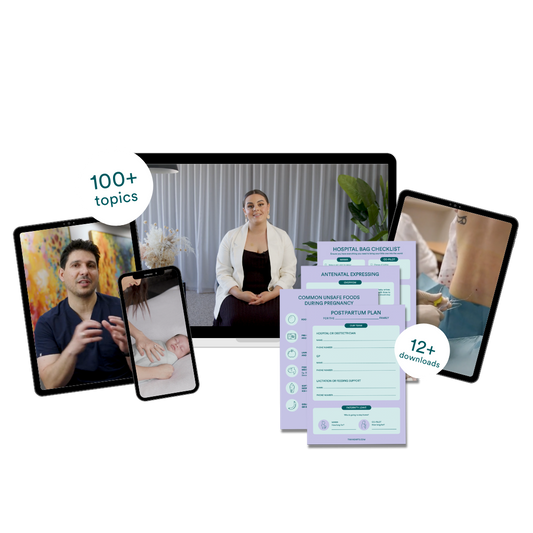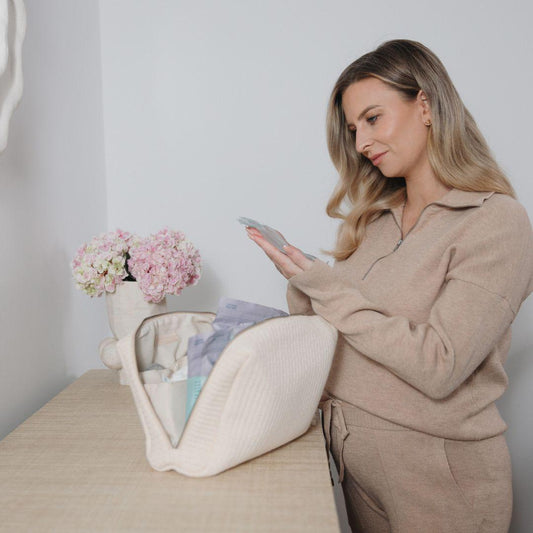I am lucky enough to work as a Maternal and Child Health Nurse, caring for families from birth until preschool age and monitoring their child’s growth, development and the family’s overall wellbeing. We provide parenting and health education, guidance around what to expect and how to manage hurdles they may face along the way, referring to other health professionals when required. It is a privilege to build these relationships with families and watch them grow and blossom, sometimes after facing large challenges along the way.
In Victoria, MCH nurses are Registered Nurses, Registered Midwives and hold postgraduate qualifications in Child, Family and Community Nursing. Every day I see families in their homes and in the centre and we discuss a range of topics, however there are some common questions families bring with them on a daily basis as below:
1. When will my child… sleep through the night.. crawl.. walk.. talk.. be toilet trained?
There is a range of typical development & guidelines around when to refer children on, however, as long as there is progress over time, the age at which they nail the skill isn’t so important. Comparison is natural but rarely helpful - in the moment it can feel incredibly deflating and stressful if your child is not meeting milestones at the same pace as others around you, but remember they are a unique little person who will advance in their own time.
If you are unsure regarding your unique child’s developmental progress, please chat with us, your GP or paediatrician for advice. We have heard every question you think is silly before, trust me! In Victoria we also have the MCH Line available 24/7 on 13 22 29, or Parentline (1300 30 1300) in other states. Raisingchildren.net.au also has fantastic general information regarding normal development and when to seek help.
2. Should I breastfeed my baby?
In a perfect world, yes - biologically, babies are made to breastfeed and breasts are made to feed babies. Human milk is the perfect food for babies and provides a multitude of benefits for them.
However, every family needs to make parenting decisions that work best for them - this may not include breastfeeding, and that’s ok. Some families are desperate to breastfeed their babies but face insurmountable challenges and are either unable to establish breastfeeding or stop before they would have liked, others make the choice to formula feed their babies from birth.
We are here to ensure you receive the information and support to make the right choices for you. Please know too, breastfeeding doesn’t have to be all or nothing – any breastmilk your baby receives is beneficial and doing a bit of both breastfeeding and formula feeding can work well for some families.
Whether you breastfeed, formula feed or combine the two, the aim is a healthy, thriving baby and happy family.
3. I’m not enjoying this - am I a terrible parent?
NO! Parenting is really bloody hard! I don’t think I’ve met a single parent who honestly loves every single minute of it. The adjustment to parenthood can be a rough ride and it’s absolutely ok to say “This really sucks” sometimes. Speak with someone you can vent to - this may be a friend, family member, or a professional.
Connecting with others who are experiencing similar challenges can also be very validating, there’s nothing like some camaraderie with other sleep-deprived parents to reassure you that it’s not just you.
In Victoria, first-time parents are invited to attend New Parent Groups for this very reason, so even if it doesn’t sound like your jam I’d urge you to try one session at least, as you may just meet some life-long friends. If not, we can also point you in the direction of local playgroups, community groups, parenting programs and services where new parents can find support and make social connections.
If you’re really struggling and are concerned about your mental health, the PANDA hotline is a fantastic place to start seeking support: 1300 726 306.
4. Why does my baby have such a snuffly nose?
Babies have tiny airways so any little bit of “snot”/dust, or even being tired can cause them to be super noisy, particularly at night when the rest of the world is sleeping! As long as they aren’t showing any signs of respiratory distress (come along to a course to learn what those are!) a snuffly nose can be very normal for a little baby. If nasal congestion is affecting their feeding or annoying them, a saline spray (gently!) can help it to clear. Of course, if you are unsure then a check-up with your GP is always a good idea for peace of mind.
5. What happened to my baby’s perfect skin?
Sensitive newborn skin can be temperamental whilst babies are transitioning from womb life to being earthside. During the first few weeks of this adjustment, they can develop flaky dry skin, so you can apply a thick, non-fragranced moisturizer if you wish (no food products as this can increase their risk of developing food allergies later on) and avoid any bath products that contain soap or are fragranced as this can exacerbate the dryness.
Then there are the common newborn rashes like erythema toxicum neonatorum or milia where they can resemble tiny pimply teenagers, which resolve without treatment. (Check out our rash guide for more information on recognising and responding to common rashes in babies and children). If unsure it’s best to check in with your GP who can advise on exactly what is happening and the best treatment, if required.
You’re doing great!
As a new parent, you have entered a whole new world which can be exciting but also incredibly daunting. But you don’t have to go it alone or feel like you’re winging it every day! Having a health professional you trust to ask all those niggling questions of “is this normal”/”what can I do about…” just like Tiny Hearts in the First Aid space, your MCH nurse is there to provide that reassurance, as well as advice and referrals to empower you to be the best parent you can be
Written for Tiny Hearts by our expert MCH Nurse.








